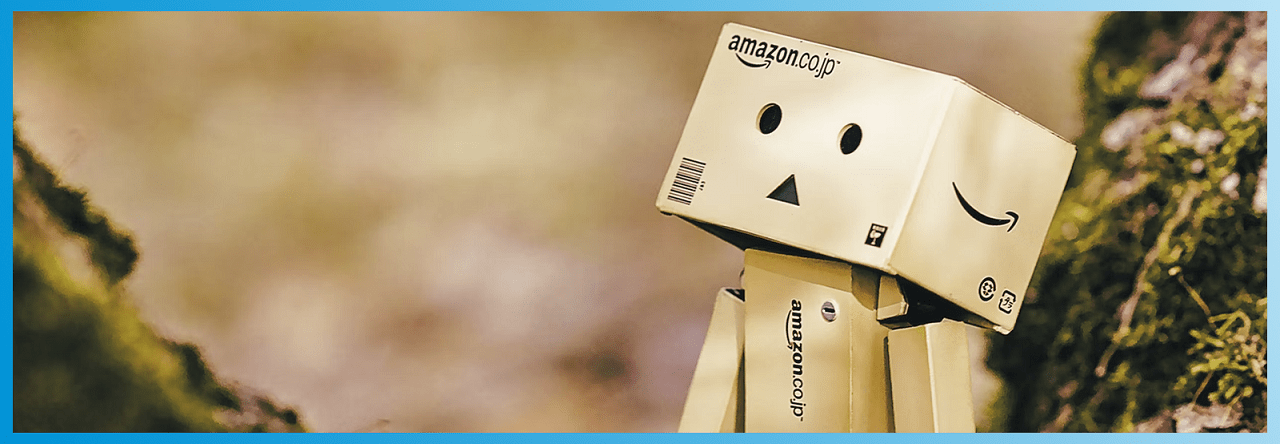Intellectual Property Insights from Fishman Stewart
Mini Article – Volume 22, Issue 12
Share on Social

The Results are in on Amazon’s Ambitious Brand Enforcement Technology
Your brand is everything: an identity, a reputation, and a revenue-generating asset. One of the greatest threats to brands comes in the form of counterfeit products. Amazon is one of the largest sellers of fake goods—second only to eBay. In response to widespread criticism regarding the proliferation of fake goods sold via its online marketplaces, Amazon developed initiatives that brand owners can utilize to better protect their brands and that cut down on the sale of counterfeit products. These initiatives include Amazon’s Brand Registry, IP Accelerator, Project Zero, Transparency, and Patent Evaluation Express.
Recently, Amazon published its second annual Brand Protection Report, compiling the results of the various initiatives that were implemented to reduce intellectual property abuse across its site. According to the report, in 2021, Amazon invested more than $900 million and employed more than 12,000 people including machine learning scientists, software developers, and expert investigators who were dedicated to protecting customers, brands, selling partners, and the Amazon storefronts from counterfeit, fraud, and other forms of abuse.
Further, Amazon reported that over 3 million counterfeit products were seized in 2021. The counterfeit products included goods distributed into Amazon’s fulfilment network and those detained via warehouse and facility raids in collaboration with brand owners and law enforcement. Additionally, Amazon’s Counterfeit Crimes Unit increased the number of criminal proceedings that it initiated by 300%, suing or referring more than 600 criminals for investigation by authorities in the United States, China, Europe, and the United Kingdom.
Enrollment in Amazon’s Brand Registry and Project Zero also increased. For instance, the total number of brands enrolled in Brand Registry increased 40% with the number of enrolled brands growing from over 500,000 to over 700,000, and the total number of brands enrolled in Project Zero increased 11% with the number of enrolled brands exceeding 20,000.
It is a positive sign that the initiatives implemented by Amazon to reduce the sale of counterfeit products appear to be making an impact. However, counterfeiting is far too profitable a venture to disappear altogether, and in a global economy where more and more transactions occur via online marketplaces, brand owners must be vigilant to protect their brands. So, for companies that are looking to sell their goods on Amazon, these initiatives are a cost-effective and expedient way to reduce damages that may come from sales of counterfeit goods.
For more information on how to fight counterfeiters on Amazon, see our white paper on the subject.
Published June 17, 2022


Related Content from Fishman Stewart
People have long pondered whether or not the Giza pyramids were indeed solely burial chambers, which was the only known, and archaeologically determined, use—until now.
By 1930, efforts began in New York to replace Mother's Day with Parent's Day because men were more than just breadwinners. Those efforts didn't catch on, probably because in that era, women often spent more time in the home.
In February, Nike and Skims announced that they will be working together on a new brand, NikeSkims. The co-brand will create a new line of training apparel, footwear, and accessories specifically designed to meet the unique needs of women athletes.
Generally, federal courts have exclusive jurisdiction over copyright cases, and often, this presents an insurmountable paywall for individual artists and small businesses to vindicate their rights, especially where the value of the individual copyrighted works are relatively low.
Dedicated to raising public awareness about the importance of encouraging innovation and creativity throughout the world, the World Intellectual Property Organization (WIPO) annually observes World Intellectual Property Day on April 26 to showcase the role that patents, trademarks, industrial designs, copyrights and trade secrets play in our everyday lives.
Hold onto your foam fingers, sports fans – college sports just got a whole lot more interesting! The latest updates to Name, Image, and Likeness (NIL) rules are making student-athletes bigger than ever, and it’s not just about the game anymore.
Did a federal court in Louisiana recently decide that US copyrights are global rights? It seems so.
One of his most famous songs, “Lose Yourself” was recently at the center of a lawsuit. In 2019, Eminem’s publishing company Eight Mile Style sued Spotify claiming that Spotify streamed a number of its musical compositions without proper licenses.
One of the most common challenges is whether AI should be free to train on data that is protected by copyright and owned by third parties without first obtaining permission.
The U.S. Copyright Office (USCO) recently published its latest report on AI and “copyrightability.” In short, the USCO considers only some AI-generated works to be sufficiently creative as to deserve copyright protection, and thus, registration.
IDENTIFYING, SECURING AND ADVANCING CREATIVITY®












